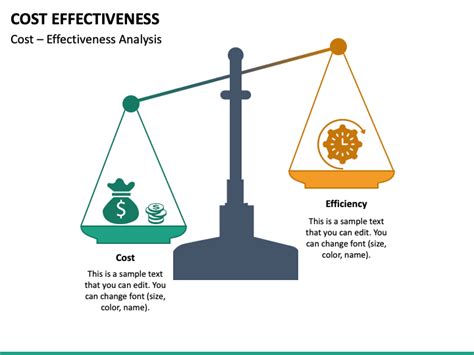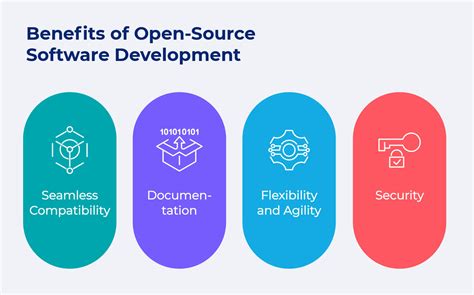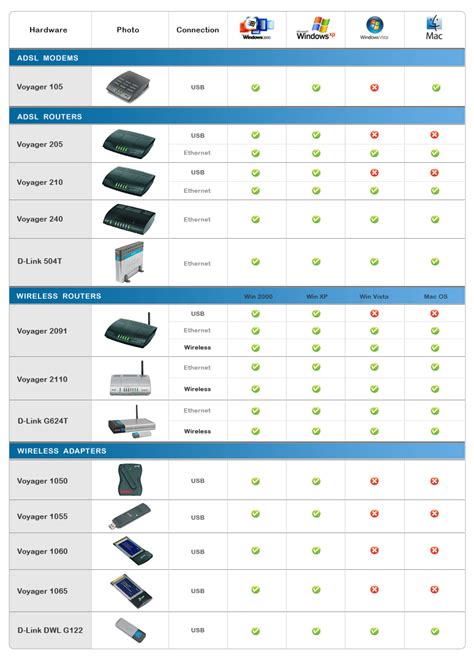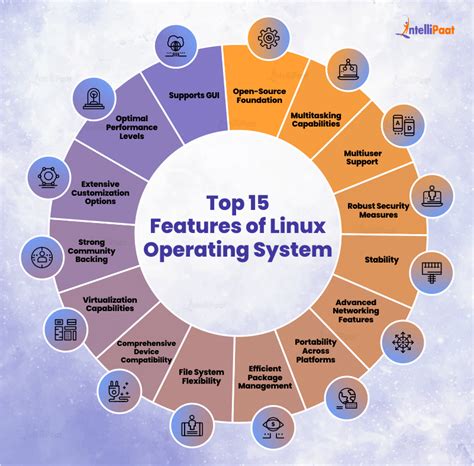In a rapidly evolving digital landscape, the demand for a reliable and efficient operating system has never been more pressing. Enter Linux, an unparalleled software solution that boasts a multitude of advantages over its counterparts. Offering an array of groundbreaking features, Linux has carved a niche for itself as a powerhouse in the world of operating systems.
First and foremost, Linux distinguishes itself through its unparalleled flexibility. With its open-source nature, this innovative platform is not bound by the constraints of proprietary software. Users have the freedom to customize and modify the system to suit their specific needs, creating a truly tailor-made experience. This unparalleled level of customization empowers individuals and organizations alike, enabling them to unleash their full potential.
Moreover, Linux is renowned for its robust security measures. By leveraging the strength of its community-driven development model, Linux consistently delivers swift and reliable security updates. This not only ensures a reduced vulnerability to cyber threats, but also fosters a sense of trust and confidence among its users. In a technology-driven era marked by an increasing number of data breaches, the importance of a secure operating system cannot be overstated.
Enhanced Security and Privacy

When it comes to digital security and safeguarding your privacy, the Linux operating system offers a wealth of advantages over its counterparts. Linux provides robust protection against various cyber threats, empowering users to browse the internet, install applications, and carry out computing tasks with peace of mind.
One key aspect that sets Linux apart is its open-source nature, which allows for continuous scrutiny and improvement by a global community of developers. This approach enhances security through the rapid identification and resolution of vulnerabilities, ensuring that potential weaknesses are swiftly addressed.
Moreover, Linux employs a privilege-based security model, granting users limited access to system resources by default. This confinement prevents unauthorized access to sensitive data and minimizes the potential impact of security breaches. Additionally, Linux offers comprehensive file permission controls, allowing users to specify who can read, write, or execute certain files, thereby reducing the risk of unauthorized data manipulation.
Linux also benefits from a reduced prevalence of malware specifically tailored to target the operating system. The vast majority of malicious software is designed to exploit security weaknesses in mainstream operating systems, making Linux a less attractive target for cybercriminals. While no system is entirely immune to threats, Linux's smaller user base and stringent security measures make it inherently more resistant to attacks.
Furthermore, Linux provides built-in encryption capabilities, enabling users to secure their sensitive data with ease. Whether it's encrypting entire storage devices or individual files, Linux offers robust encryption tools and techniques that help safeguard privacy and prevent unauthorized access.
In summary, Linux's enhanced security and privacy features, combined with its open-source nature and reduced susceptibility to malware, make it a compelling choice for individuals and organizations seeking reliable protection for their digital assets and personal information.
Customization and Flexibility
When it comes to personalizing and adapting your operating system to suit your specific needs, few options can match the level of customization and flexibility offered by Linux. This open-source platform empowers users to tailor their computing experience according to their preferences, enabling them to create a uniquely personalized environment.
- Choice of Desktop Environment: Linux provides a wide variety of desktop environments, each offering different features, layouts, and visual styles. Whether you prefer a traditional interface or a more modern one, Linux has options to suit all tastes.
- Package Managers: Linux offers efficient package management systems that make it easy to install, update, and remove software. With a vast repository of available software, you can choose from a vast selection of applications to enhance your productivity and meet your specific requirements.
- Customizable Workflows: Linux allows users to customize their workflows, enabling them to optimize their productivity. From keyboard shortcuts to complex scripting, Linux offers the flexibility to create workflows that streamline tasks and maximize efficiency.
- Hardware Compatibility: Linux is known for its broad hardware compatibility, allowing users to run the operating system on a wide range of devices. Whether you're using a desktop computer, laptop, or even a single-board computer like Raspberry Pi, Linux offers flexibility in hardware usage.
- Privacy and Security: With Linux, users have more control over their data and security. The open-source nature of the operating system allows for transparent code scrutiny and a community-driven approach to addressing vulnerabilities, ensuring a higher level of privacy and security.
These are just a few examples of the customization and flexibility that Linux provides. With its open-source nature, Linux empowers users to shape their operating system to match their unique preferences and requirements, offering a truly personalized computing experience.
Cost-effectiveness

In today's fast-paced digital world, the concept of cost-effectiveness is one that holds significant importance. When considering different operating systems available, it becomes essential to evaluate their financial impact and the value they bring to businesses and individuals. Linux, with its inherent cost-effectiveness, sets itself apart from its counterparts, offering a range of financial benefits and advantages that contribute to its growing popularity and adoption.
Economic Efficiency:
Linux offers economic efficiency, allowing businesses and individuals to save on costs associated with licensing fees. Unlike proprietary operating systems, Linux is open-source and freely available, eliminating the need for expensive licenses and reducing the overall financial burden. This open-source nature empowers users to customize and modify the operating system according to their specific requirements without incurring additional costs.
Hardware Optimization:
Another advantage of Linux's cost-effectiveness is its ability to run on a wide range of hardware, including older or less powerful machines. By utilizing Linux, businesses and individuals can extend the lifespan of their existing hardware, optimizing their investment and avoiding the need for frequent hardware upgrades. This not only saves money but also reduces electronic waste and contributes to a more sustainable approach to technology.
Reduced Maintenance Costs:
Linux's streamlined design and robust security features contribute to lower maintenance costs. It is known for its stability, reliability, and resistance to malware and viruses, reducing the need for time-consuming and expensive security measures. Moreover, the vast community of Linux users and developers actively contribute to its improvement and bug fixing, ensuring a high-quality and reliable operating system without the need for costly external support or maintenance contracts.
Efficient Utilization of Resources:
Linux's lean and efficient nature allows for the optimal utilization of resources, making it a cost-effective choice for businesses. It requires fewer hardware resources to operate, resulting in reduced energy consumption and lower electricity bills. Additionally, Linux's modular and lightweight design enables swift and efficient system updates, eliminating the need for time-consuming and resource-intensive updates often associated with other operating systems.
Long-Term Cost Savings:
By embracing Linux, businesses and individuals can reap long-term cost savings. The absence of licensing fees, coupled with reduced hardware and maintenance costs, lead to significant financial benefits. Moreover, the reliability and stability of Linux minimize costly downtime and productivity losses caused by system failures and crashes, enhancing overall cost-effectiveness.
Overall, Linux's cost-effectiveness serves as a compelling reason for its wide-scale adoption. Its economic efficiency, hardware optimization, reduced maintenance costs, efficient resource utilization, and long-term cost savings make it an attractive choice for businesses and individuals looking for a financially advantageous operating system.
Advantages of Linux in Terms of Stability and Reliability
In the realm of operating systems, stability and reliability are paramount. When it comes to these key aspects, Linux stands out as an elite choice, distinct from its counterparts. Linux shines in terms of its robustness, steadfastness, and dependability, making it an optimal option for various computing needs.
One of the standout characteristics of Linux is its exceptional stability. Unlike other operating systems, Linux exhibits an unparalleled ability to maintain consistent and uninterrupted performance over extended periods. This stability is a result of the meticulous design and rigorous testing that goes into the development of Linux distributions. The system's robustness ensures minimal crashes, system freezes, or unexpected shutdowns, allowing users to rely on the operating system for critical tasks without worry.
Furthermore, Linux demonstrates remarkable reliability in handling resource-intensive workloads. Whether it's running complex applications or serving as a server for websites or databases, Linux excels in managing heavy computing tasks seamlessly. Its efficient memory management, efficient multitasking capabilities, and robust file system contribute to its reliability, ensuring consistently high performance even under demanding conditions.
Another highlight of Linux in terms of stability and reliability is its ability to avoid malware threats successfully. Linux's built-in security measures and its open-source nature make it less susceptible to viruses, spyware, and other malicious software. Its strict user privilege system and robust permissions architecture make unauthorized access and system breaches highly improbable, thus maintaining the overall stability and reliability of the system.
| Linux's Stability: | Uninterrupted performance | Minimal crashes | System freezes | Reliability in Resource-Intensive Workloads: | Efficient memory management | Seamless multitasking | Robust file system |
| Linux's Reliability against Malware: | Built-in security measures | Open-source nature | Less susceptible to viruses, spyware | Strict user privilege system | Robust permissions architecture |
Benefits of the Open Source Community

In today's interconnected world, a vast and vibrant network of individuals and organizations collaborate and contribute to the development of open source software. This community acts as a driving force behind innovation, accessibility, and freedom in technology.
Collaborative Ingenuity: The very essence of the open source community lies in its collaborative nature. Developers from different backgrounds and geographies come together to collectively improve and enhance software projects. This collaborative environment fosters creativity and innovation, leading to the creation of high-quality software solutions that cater to diverse needs.
Transparency and Security: Open source software undergoes a thorough and rigorous inspection by a vast community of experts. This transparent approach allows for quick identification and elimination of vulnerabilities, ensuring enhanced security. With the code being open to public scrutiny, the chances of security breaches or hidden malicious functionality are significantly reduced.
Flexibility and Customization: Open source software empowers users with the freedom to modify and customize the code according to their specific requirements. This flexibility allows individuals and organizations to adapt the software to suit their unique needs, leading to increased efficiency and productivity.
Cost-Effectiveness: Utilizing open source software can result in cost savings for individuals and businesses. With no licensing fees associated with most open source projects, organizations can allocate their resources towards other areas of development or innovation.
Continuous Improvement: The open source community is characterized by an active and dedicated community of developers who constantly work towards improving and refining the software. Regular updates and bug fixes ensure that users have access to the latest features and enhancements.
Knowledge Sharing and Learning: Open source software encourages knowledge sharing and learning. Developers can access and evaluate codes written by experienced professionals, providing valuable learning opportunities. Additionally, collaborative platforms and forums allow beginners to seek guidance and learn from experts in the field.
In conclusion, the open source community serves as a powerful catalyst for progress in the technology industry. By fostering collaboration, transparency, and customization, open source software empowers users to build, share, and continuously improve software solutions in a cost-effective and secure manner.
Multitasking and Performance
Enhanced multitasking capabilities and superior performance are key factors that set Linux apart from other operating systems.
Linux offers seamless multitasking, allowing users to run multiple processes simultaneously without any significant impact on system performance. This means that you can easily switch between different applications and perform various tasks concurrently.
With its efficient and lightweight design, Linux optimizes resource allocation, ensuring that system resources are used judiciously. This results in improved performance, faster response times, and overall smoother operation compared to other operating systems.
Furthermore, Linux's modular structure enables easy customization and scalability. Users have the freedom to select and install specific components and features according to their requirements, avoiding unnecessary bloat and maximizing system efficiency.
In addition, Linux's robust and stable architecture contributes to its exceptional performance. Its open-source nature allows continuous development and improvement, addressing any performance bottlenecks and keeping up with evolving hardware advancements.
Moreover, Linux's extensive support for a wide range of hardware platforms ensures compatibility and optimal utilization of system resources, further enhancing its multitasking capabilities and overall performance.
Overall, Linux's emphasis on multitasking and performance makes it a preferred choice for individuals and organizations seeking a reliable and efficient operating system.
Compatibility with Different Hardware

When it comes to the ability to work seamlessly with various hardware components, Linux stands out as a highly compatible operating system. It offers extensive compatibility with a wide range of hardware devices, ensuring smooth functioning across diverse computer systems.
One of the key advantages of Linux is its ability to work with both old and new hardware. Whether you have a legacy computer or the latest high-end device, Linux can adapt and function optimally without any compatibility issues. This versatility makes Linux a popular choice for users who have older devices or who prefer to customize their hardware configurations.
In addition, Linux supports a vast array of hardware architectures, including x86, ARM, PowerPC, and more. This broad compatibility ensures that Linux can be deployed on a diverse range of devices, such as desktop computers, servers, embedded systems, and even mobile devices. This flexibility enables users to choose their preferred hardware platform without limitations imposed by the operating system.
Furthermore, Linux offers comprehensive driver support for a wide range of hardware devices. The open-source nature of the operating system encourages the development and maintenance of drivers by the community, leading to extensive hardware support. This means that users can easily find and install drivers for their peripherals, including graphics cards, printers, scanners, and various input/output devices, ensuring smooth operation and optimal performance.
| Benefits of Linux Compatibility with Hardware |
|---|
| Seamless functioning with diverse hardware components |
| Compatibility with both old and new hardware |
| Support for various hardware architectures |
| Comprehensive driver support for peripherals |
Wide Range of Software Options
When it comes to the world of software, Linux offers a vast array of choices to suit every individual's needs. This operating system provides users with a diverse range of software options that cater to various tasks and requirements, ensuring flexibility and customization.
One of the major advantages of Linux lies in its extensive software repositories, which offer a collection of open-source applications and programs. These repositories provide users with a wide selection of software that can be easily installed and updated, covering everything from office productivity tools to multimedia editing software.
Moreover, Linux fosters a vibrant developer community that constantly creates and contributes to the software ecosystem. This community ensures the availability of a multitude of applications, enabling users to find specialized tools for specific tasks. From programming languages and development environments to scientific computing and graphic design software, Linux accommodates diverse fields and disciplines with its expansive software options.
Another notable aspect of Linux is its compatibility with various file formats, allowing seamless integration and cross-platform functionality. Users can easily collaborate and share files with users on different operating systems, thanks to the compatibility of Linux software with commonly used file types.
Furthermore, Linux provides a secure and stable environment for software installation and execution. With its robust architecture and strict security measures, users can rely on Linux to protect their systems from malicious attacks and ensure the integrity of their software installations.
In conclusion, the wide range of software options offered by Linux makes it an attractive choice for users seeking flexibility, compatibility, and security in their operating system. Whether it's for personal, professional, or academic purposes, Linux provides a diverse ecosystem of software to cater to the unique needs of its users.
[MOVIES] [/MOVIES] [/MOVIES_ENABLED]FAQ
What are some of the advantages of Linux compared to other operating systems?
Linux offers several advantages over other operating systems. Firstly, it is an open-source system, which means it is freely available and can be customized according to individual needs. This allows for greater flexibility and control over the system. Secondly, Linux is known for its stability and security. It has a solid reputation for being less susceptible to malware and viruses compared to other operating systems. Additionally, Linux is highly efficient and can run on older or less powerful hardware, making it a cost-effective choice for both personal and business use. Finally, Linux offers a vast number of software applications and tools, many of which are also open source, allowing for a wide range of options and customization for users.
Is Linux compatible with all types of hardware?
Linux is known for its excellent hardware compatibility. It supports a wide range of hardware devices, including processors, graphic cards, sound cards, and network adapters. Due to its open-source nature, Linux developers have been able to create drivers for a wide variety of hardware, ensuring compatibility with most devices on the market. However, it is important to note that there may still be some exceptions or rare hardware that may not have proper Linux driver support. Overall, Linux offers excellent hardware compatibility, making it suitable for use on various types of computers and devices.
Can Linux be used for gaming?
Yes, Linux can be used for gaming. In recent years, there has been significant development in gaming on Linux. Many popular game developers and platforms have started offering support for Linux, allowing users to enjoy a wide range of games on Linux-based systems. Additionally, Linux has its own gaming distribution platforms, such as Steam for Linux, which provides a growing library of games specifically designed for Linux. However, it is important to note that while the gaming options on Linux have improved, there may still be some games that are not available or not fully optimized for Linux. Overall, Linux can be a viable option for gaming, especially for users who prefer open-source systems.





